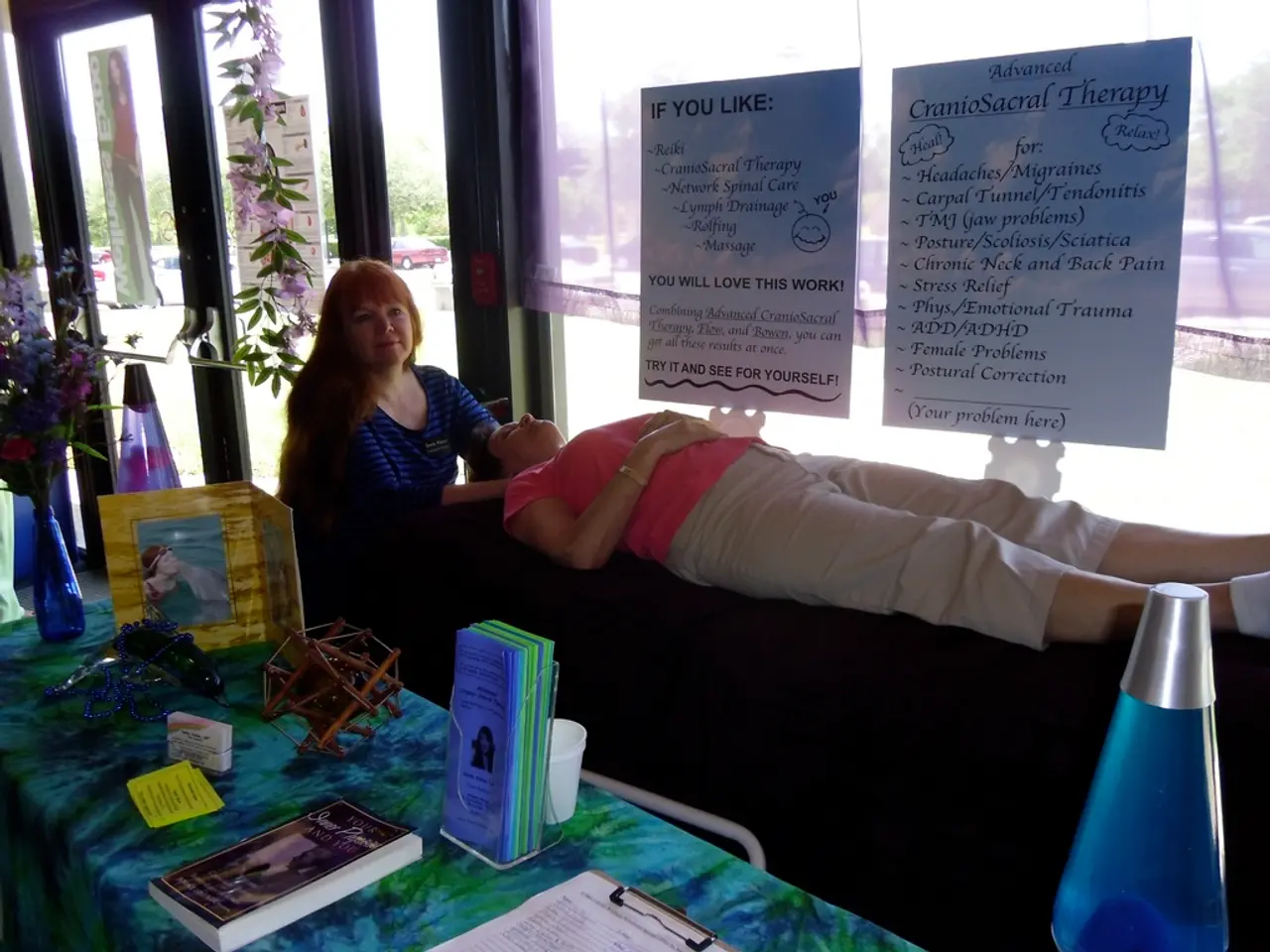"Stepping Up Protections" Examining the Controversy behind Social Media Regulations for Youth
Experts weigh in on potential ban of TikTok for minors and adolescents
German teenagers are spending an average of 48 hours weekly on their screens, equating to nearly seven hours daily - a concerning figure experts are seeking to address. However, a blanket ban on social media for children and younger teens, recently implemented in Australia, is causing debate among experts.
"Such a move would questionably comply with German standards in terms of proportionality," comments media law expert Stephan Dreyer from the Leibniz Institute for Media Research. He believes that children's rights, including participation, must be considered.
A Shift in Regulations: Age and Verification
In Australia, teens will soon need to be 16 to use platforms like TikTok, Facebook, and Instagram, a decision being hotly debated in Germany. CDU politician Karin Prien frowns upon this regulation but emphasizes the need to safeguard children's use of social networks.
Expert Dreyer suggests that platform providers should create accounts with child-friendly content, with age verification through ID checks or biometric analysis needed for other content. He believes this would not pose a significant technical challenge.
Internet addiction researcher Isabel Brandhorst advocates for rigorous age verification but isn't settling on a suitable age. She expresses skepticism about platforms, suggesting they might hesitate to make applications child-friendly as it could impact their revenue, as regulations such as time limits and advertising bans would also be required.
Brandhorst sees schools as responsible for teaching media literacy, stating that essential survival skills for children and young people online are not currently being properly taught.
Concerns and Limitations: Research and Business Interests
Anne-Linda Camerini from the University of Lugano is against blanket bans, arguing against causing panic and stigmatization. She claims that taboos could make offers even more appealing, and bans could be circumvented.
Experts agree that there is insufficient research on the role social media plays in many children and young people's psychological problems. They acknowledge that several factors, including the pandemic's consequences, other external influences, and the climate crisis, also contribute to mental health issues among this demographic.
A Growing Consensus: Global Movements and Regulations
Recent industry trends indicate a growing consensus on restricting access for younger users and enforcing stricter age verification methods. Germany's approach aligns with practices across Europe, where the minimum age to use social media is often set at 13, with parental controls, or raised to 15 or 16 in some countries.
Australia has already demonstrated an effective age verification system, which could influence EU-wide measures.
Starting July 2025, the European Union will require age verification for adult internet users to access age-restricted content. There is pressure from numerous EU countries, including Germany, to enforce age verification for users under 15 on social media platforms to protect mental health and reduce online harms.
In conclusion, both Germany and Australia are taking steps to strengthen protections for young users on platforms like TikTok, Facebook, and Instagram. Experts, governments, and petitioners propose stricter age verification measures and advocate for responsible, secure age verification tools to ensure a safe and healthy digital environment for children and teenagers.
Sources
- ntv.de
- mbr/dpa
- [1] Media Matters for Europe (MMF)
- [2] European Commission (EC)
- [3] UK Council for Child Internet Safety (UKCCIS)
- [4] European Consumers' Organisation (BEUC)
- [5] European Parliament (EP)
- Under the scrutiny of experts, German community policy is examining the implications of implementing social media regulations for youth akin to the Australian model, considering its compatibility with proportionate standards.
- As age verification becomes mandatory for accessing social media platforms in Australia, discussions about the appropriate age for teens to use such platforms persist in Germany, with a focus on mental health and fitness-and-exercise concerns.
- Science, specifically internet addiction research, highlights the need for more vigorous verification methods but poses the question of finding a suitable age while addressing potential business interests that could be affected by these regulations.
- In contrast to measures supporting age verification, Anne-Linda Camerini from the University of Lugano advocates against blanket bans on social media for young users, citing concerns about causing panic, stigmatization, and potential evasion of these restrictions.
- In their efforts to enforce stricter age verification measures, both Germany and Australia are aligning with global movements, including the EU's plan to require age verification for adult internet users and implement controls for users under 15 on social media platforms by 2025 to improve health-and-wellness and address mental-health issues.






